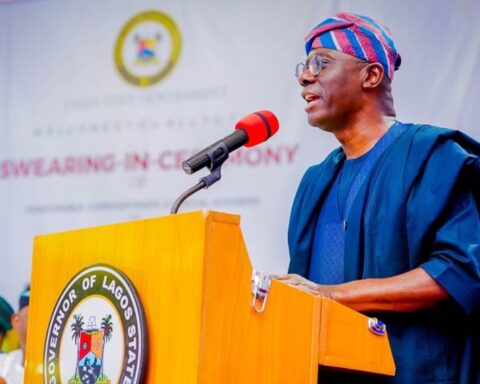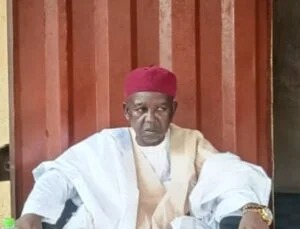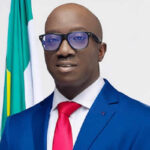Dr. Nnamdi Okonkwo
By Frank Oshanugor
A security consultant and former Commandant with the Nigeria Security and Civil Defense Corp (NSCDC), Dr. Nnamdi Naps Okonkwo has described the gale of defection by politicians to the ruling All Progressives Congress (APC) as a bad men with very serious negative implications for Nigeria’s democracy.
Speaking at the weekend in Lagos to ATLANTICNEWSONLINE with respect to the recently celebrated Democracy Day, Okonkwo noted that in spite of the widely held belief within the political space, that Nigeria is a democratic state; evidences abound contradicting such belief.
According to him, a democratic state so called, cannot be promoting tendencies that clearly drive towards a one-party state. He posited that the on-going defection of politicians from People’s Democratic Party (PDP), Labour Party and other parties to APC in a manner that breaches provisions of the constitution portends serious danger for the nation.
To him, the act has “significant negative implications for the country’s democratic development.” Giving a breakdown of the implications, he said one is the death of ideology and policy focus. Explaining this, he argued that Nigeria’s political parties largely lack distinct ideologies or clear policy platforms adding that ongoing defections highlight this, as politicians switch allegiances based on personal gain, political survival, rather than on a change of conviction.
“There is erosion of informed choice. When parties are indistinguishable, voters are left with limited meaningful choices, reducing elections to personality contests rather than a selection of policies.
“There is also weakening of opposition and accountability since
One-party dominance arising from mass defections, especially to the ruling party, weakens the opposition significantly.
“A strong opposition is crucial for checks and balances, holding the government accountable, and providing alternative viewpoints,” he said
Dr. Okonkwo who is currently the Chairman/Chief Executive Officer of Boyson Nigeria Limited, Lagos also posited that the defection breeds increased executive overreach, stressing that without a robust opposition, the ruling party can become more prone to corruption, abuse of power, and authoritarian tendencies, leading to reduced oversight and protection for citizens.
“This is even as the legislature would be nothing more than a rubber stamp assembly. When opposition lawmakers cross over, the legislative arm risks becoming a mere rubber stamp for the executive, undermining its independent role.”
The security chieftain also pointed out that with the rampant defection, there is already an increase in public cynicism and voter apathy, with attendant loss of trust on the part of the leadership.
To him Nigerians witness politicians “hop between parties as casually as changing outfits,” leading to deep cynicism about the political class.
According to him, voters become disillusioned, feeling their choices do not matter if elected officials can switch parties for personal benefit. This often results in decreased voter participation and widespread indifference towards elections.
If there is one major implication in the defection syndrome, Okonkwo calls it politicization of anti-corruption efforts as there will be the tendency for selective prosecution.
“When politicians with pending legal issues suddenly have their troubles disappear after defecting to the ruling party, it delegitimizes the entire anti-corruption war and suggests that joining the dominant party offers immunity,” he argued.
He listed other implications as instability and disruption of governance, political crises at both federal and state levels, hindrance to democratic consolidation and
undermining of electoral mandates.
In summarizing, the former chieftain of NSCDC said that while political defection might be legal under certain interpretations of the Nigerian constitution, its widespread and often opportunistic nature poses a severe threat to the integrity, stability, and growth of Nigeria’s democracy.
“It undermines public trust, weakens institutions, and shifts the focus from governance and public welfare to self-serving political maneuvering,” he explained.
Follow us on all social media platforms @dailyquery for news and analyses around the globe.



























